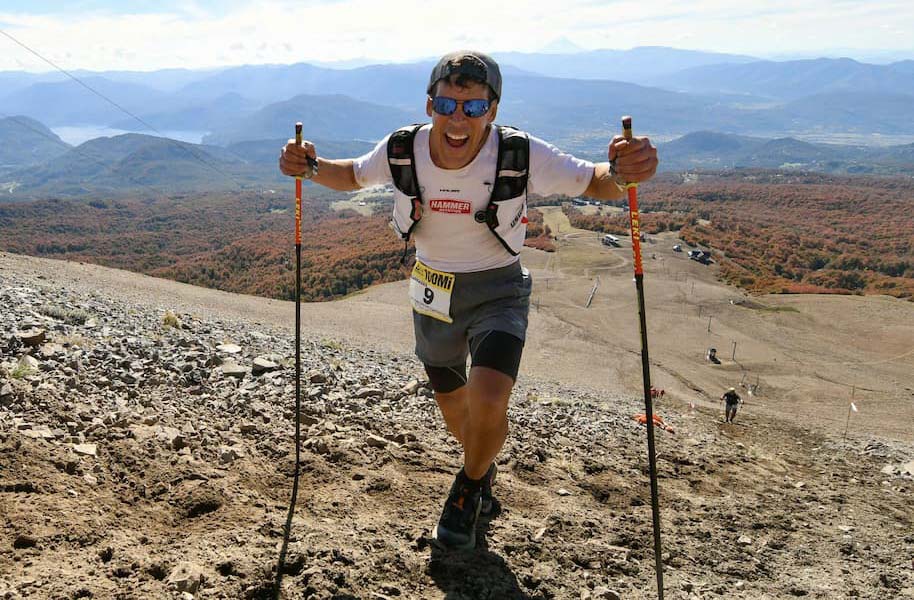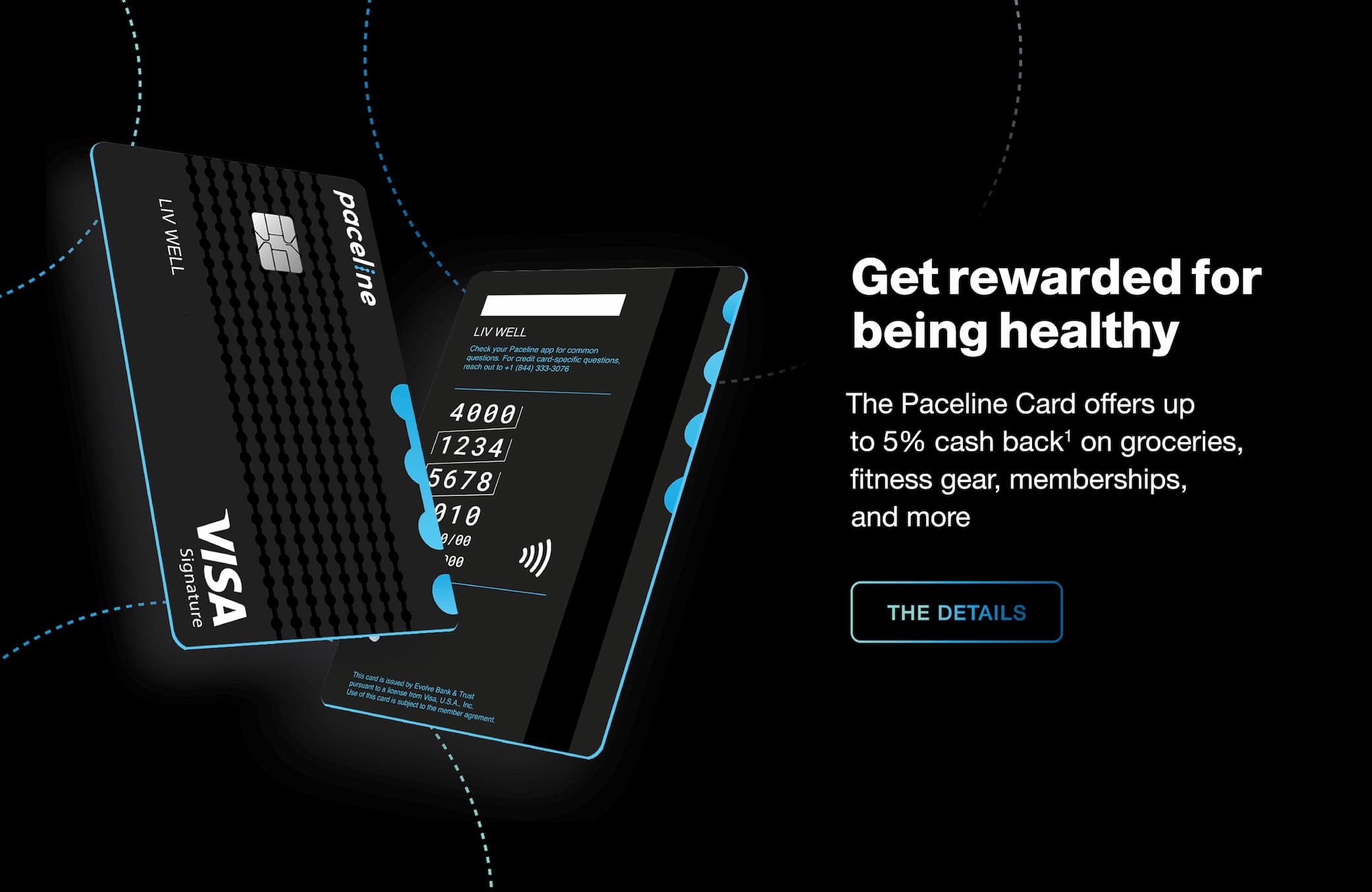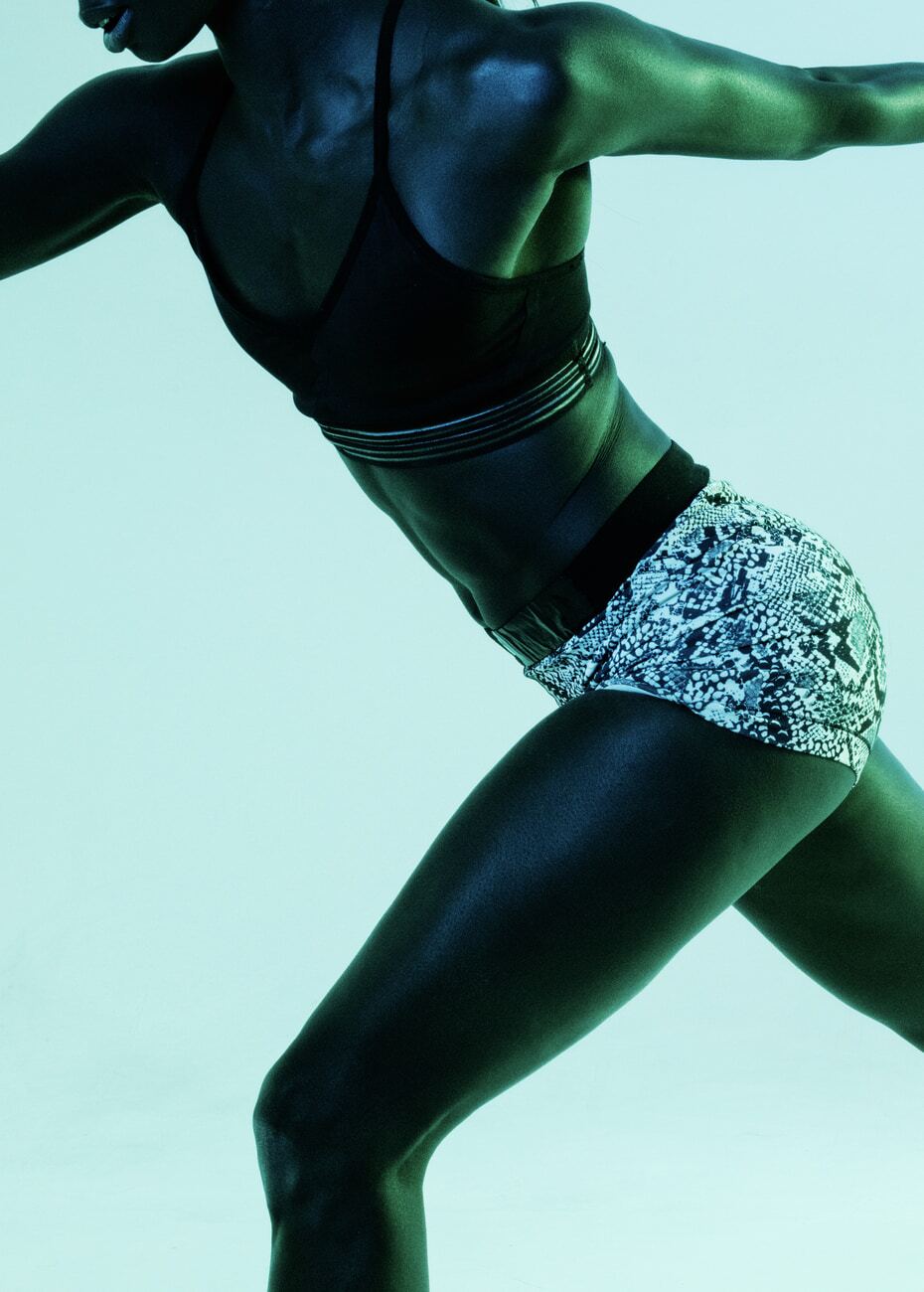A play on the 150 minutes needed to achieve a Paceline streak, 15.0 Questions presents influencers, industry experts, and fellow Pacers with 15 rapid-fire questions. First up, ultrarunner and bestselling author of seven books, Dean Karnazes. Dean is also an ambassador for Hammer Nutrition. Pacers can get a special offer and free gift in the App when they hit their streak.
This interview has been lightly edited for clarity and concision.
- Can you sum up your running career in 150 words or less?
I’ve run on all seven continents twice. I’ve run a marathon to the coldest place on earth, which is the South Pole. I’ve run across the hottest place on earth, which is Death Valley, in the middle of summer. And I’ve been doing it for almost three decades and still love it just as much as the day I began.
- What’s the biggest life lesson that you’ve learned from running?
That comfort is overrated. There’s magic in misery, I like to say, and suffering brings understanding. I think endurance sports are a lot about encountering pain and what you do when that happens.
- What is the state of ultrarunning today?
When I first started ultrarunning, it was back in the early nineties and I used to show up at these events and there’d be a couple dozen people. Nowadays, they’re very popular and there are lottery systems and long waiting lists for some of the iconic races. So the sport has really blossomed. I still think it has a lot of its grassroots essence though. You see a lot of volunteers out on the course that you’ve seen for many years. The runners are very supportive. It’s a very welcoming sport, no matter who you are.
- What is your advice to people who might want to run an ultra that haven’t yet?
Hope for the best, but plan for the worst. Start with the 50K, which is 31 miles. A marathoner might be saying, well, that’s under five miles more than a marathon, but I assure you those final few miles won’t come easy. And I would not shoot for a time goal; instead define success as crossing the finish line. Then, toy with the potential of longer distances.
- Best fitness advice you’ve ever received?
The best bit of fitness advice I’ve ever received was actually nutritional advice: “If man makes it, don’t eat it. And if it tastes good, spit it out.” I think that’s pretty good advice, to eat only things from the earth (incidentally, that’s why I love Hammer Nutrition Raw Energy Bars, simple ingredients from the earth).
- Best fitness-related investment you’ve ever made?
I’ve done a lot of investing in technology because I think technology can really unlock fitness and it can bring both a deeper comprehension of your body and your physiology as well as your limitations. As the miles have added up over the years, I’ve started changing some of my workouts with not just running, but with riding an ElliptiGO because let’s face it: 30 years of pounding, there’s some wear and tear on the joints and I can still get a great cardiovascular workout on an ElliptiGO and there’s no impact.
- Best personal finance decision you’ve ever made?
The best personal finance decision I’ve ever made is an investment in me. I think the best things in life are not things at all. So I look at investments in my body and in my mind as things that I’m willing to spend on.
- Can you talk more about Hammer Nutrition, your favorite products, and the Paceline reward?
I’ve been using Hammer Nutrition products for over 15 years and they’re tried and true and trusted. They make a full range of products, so they’ll fuel you, they’ll hydrate you, and [they’ll help] you recover. Their product line is so immense and diverse that I still come across new products that I’ve never tried before. For sleep, I use their REM Caps. After a long ultra-marathon, your body is pent up and it’s hard to sleep, but the REM Caps relax me. And their electrolyte supplement is called Endurolytes and to a lot of people that sweat a lot and have problems with cramping, they’re like a magic pill.
- What are your thoughts on Paceline’s mission?
When I heard about Paceline, I thought that’s taking [counting your steps] to the whole nother level. To reward someone for fitness is such a powerful incentive, and it makes so much sense. Everybody comes out ahead. So I’m a strong proponent of the Paceline model. And I think that if you look at the products you can get with the Card and the discounts, it’s a great program and I’m a big believer.
- How do you stay motivated to run even after hours and hours, sometimes in the grueling heat?
For me, motivation comes from within. You can pick up any book about running and it can tell you what kind of training plan you need to follow to run a 5K, 10K, half marathon, or marathon. But unless you have that passion in your heart, you just won’t get after it. So to me, I think you need to look internally and see what motivates you. For some people, it’s rewards: Rewards are powerful motivators. So if that’s what gets you going, then sign up for Paceline and go all in. I’m pretty self-motivated, but I still love getting rewards. So I reward myself all the time with different incentives if I hit my goals.
And then just get out the door. Sometimes [that’s the] hardest thing. And if you can get out the front door and start moving, usually by the time you get down the block, it starts building upon itself. And you’re always more satisfied when you come back through the door, than if you hadn’t gone.
- How do you track your activity?
I track everything from my VO2 max, heart rate, cadence when I’m running, something called EPOC, and sleep quality. I pretty much quantify everything, and I can tell when I need to recover and when I’m fully recovered. So it helps me perform better.
- Speaking of recovery, how do you recover?
I’m a big proponent of active recovery, even after a big race. I just ran a big race last weekend and today, I’m going to run—more like hobble—but noQuUzt far and not fast. I think that the worst thing you can do after a big event is just sit on the couch for days. If you sit idle, DOMS [delayed onset muscle soreness] is really pronounced versus actively recovering. So I say after a big event, drink a lot of water and do some light exercise.
- Is there anything you splurge on for your health and wellness?
I’m a hundred percent Greek, so I import a lot of products from Greece, mainly food products, like herbs and really good, high quality olive oil. The taste is just amazing.
I would advise everyone to invest in a good pair of shoes. Go to a running specialty store and have a knowledgeable salesperson fit you in a good pair of shoes, and you’ll just be that much more comfortable. They’re going to be $130 to maybe $200, but you’ll really enjoy running in them, you’ll be less prone to injury, and you’ll feel real guilty if you don’t use them because you just spent all that money on them!
I would also say, invest in a fitness tracker so you can track not only your distance and your pace, but your heart rate, too.
- What do you go more frugal on?
I have free weights and kettlebells at home, but all you really need is your body. I do 25 burpees when I get out of bed every morning. [It] is no fun, but I’ll tell you what, it sets the precedent for the rest of your day.
- What’s on the horizon for you?
I’m heading to the Midwest in a couple weeks to run a race called the Kettle Moraine 100, a hundred-mile race. Then I’m going to Greece to run a 153-mile race called the Spartathlon. As far as the BHAG — the big, hairy, audacious goal in the future — I’m planning to run from the lowest point on Earth (the Dead Sea) to the highest point on Earth (the summit of Mount Everest) with a friend of mine, another very accomplished ultra marathoner. It’s never been done before.
Bonus: Is that something you recommend to everyone — always having a BHAG?
I think you should always have a three- to five-year plan with a big, hairy, audacious goal somewhere in that range. Pull out a notepad and say, what would be my ultimate goal in life? If I could do anything, what would it be? Just dream, pretend like you could do anything and there’s nothing holding you back. Put that down on paper and then you have an idea of where you want to go. If you don’t know where you want to go, you’re never going to get there. So I say start at that point and then everything you do will be moving toward that dream.
Bonus: Is there anything else we didn’t touch on that you think would be important for Pacers to know?
A lot of people ask me if I listen to music. I’m not really a big music guy, but if you like music, by all means, listen to music as a motivator. The other thing I would recommend is audiobooks. I have about 500 audiobooks on my playlist. And I’ll tell you what, you get into a good book while you’re running and you don’t want to stop. So use that technology and music to get you out the door and motivated if that’s what flips your switch.
Bonus: Can you speak to the importance of prioritizing health?
Prioritizing your health is as important as anything in your life, as your job, as your family. Your personal health matters probably more than anything. And people neglect that. So, you have to look at everything you do through the lens of trying to be the best animal that you can be, when it comes to food choices, when it comes to exercise, when it comes to quality of sleep, all of those things, try to optimize those so that you have optimal health. With that mindset, everything changes, the way you look at the world changes. And when you start feeling better, you have more energy and you’re more giving to others and life becomes brighter.



